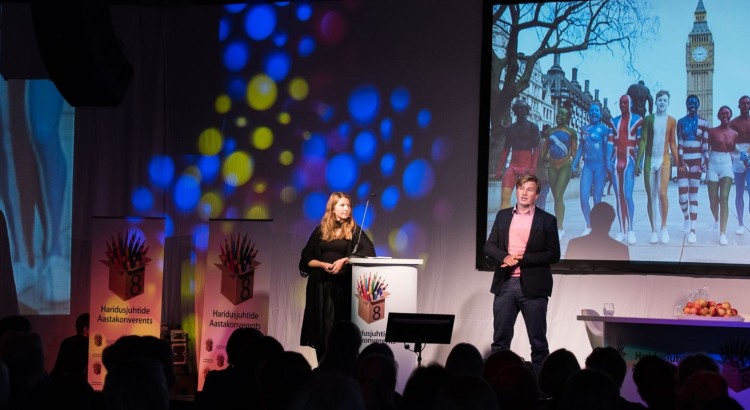In 20 years time the predictions suggest that we have conquered most diseases with nanobots that slush around in our bloodstream. People aren’t allowed on highways, because they disturb the self driving cars. The virtual reality that is beamed onto our retina from smart glasses is 100% same as the reality.
The people, who will create this world are leaving school today. Some of these youngsters will get involved in designing and creating this world, others will learn to get by. Some will not be prepared for that new world at all.
My wife and I were invited to give a talk at the Headteachers Annual Conference in Estonia. I left the teachers with the challenge – a challenge that only they can solve: how should we prepare the next generation for the brave new world?
I do think that the technological progress of this civilisation is limited by the number of people coming out of our schools, who can work on hard problems around the globe simultaneously. Most of our technologies are iterative – the first generation needs to be adopted, before we can invent and build the next generation of the tech.
We are not limited by raw intellect, there is so much of that among our 6 billion biological CPUs. We are limited by our ability to adopt technology and our ability to put our intellectual horsepower to use on hard problems.
Our schools haven’t evolved nearly as fast as the rest of our lives. How should we help our future generations adopt the core principles of innovation – that it’s ok to learn through failure, taking ownership, breaking the rules and being creative.
This is one of the hard problems to solve and possibly have the biggest possible long term impact in the world.
